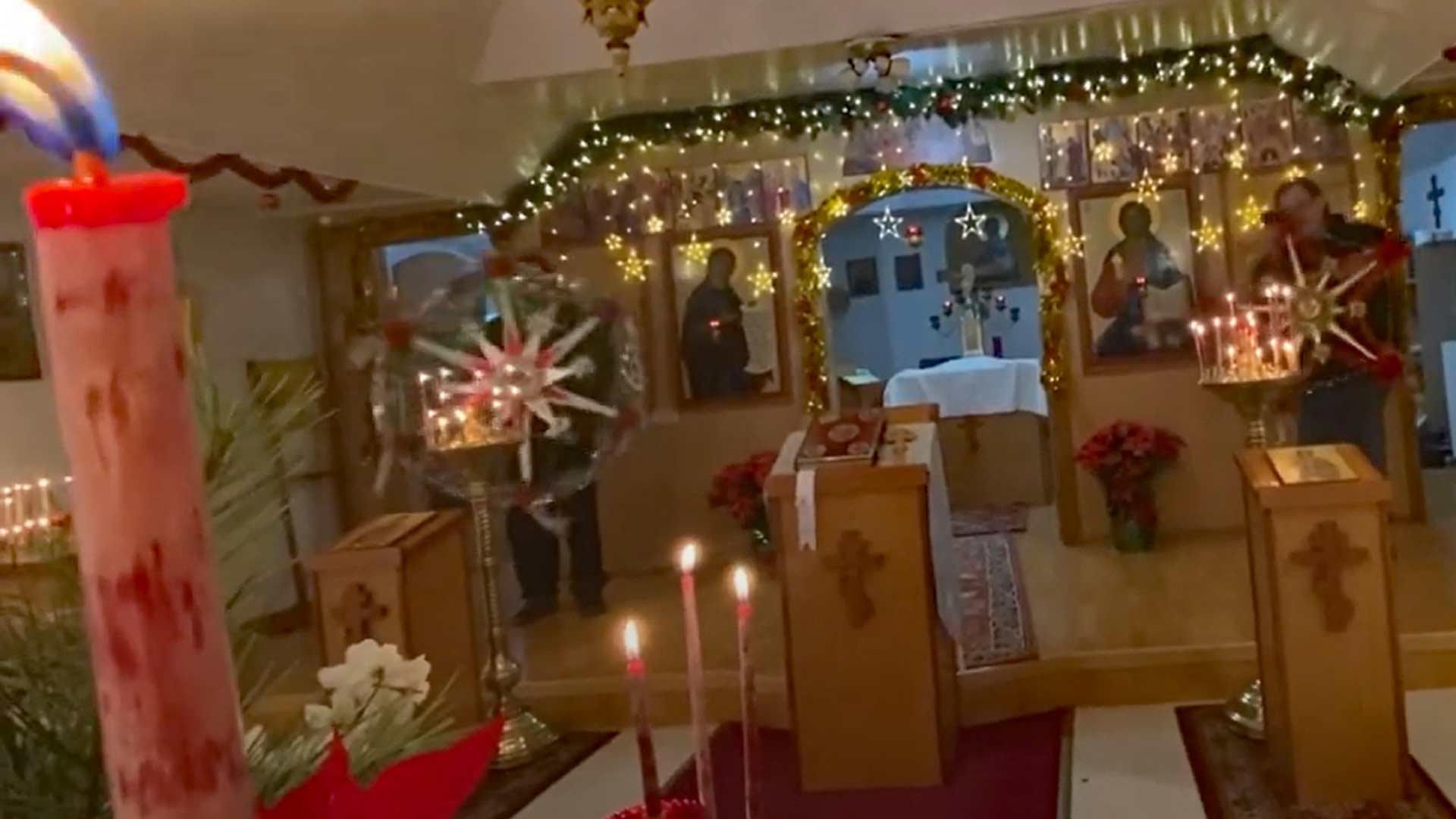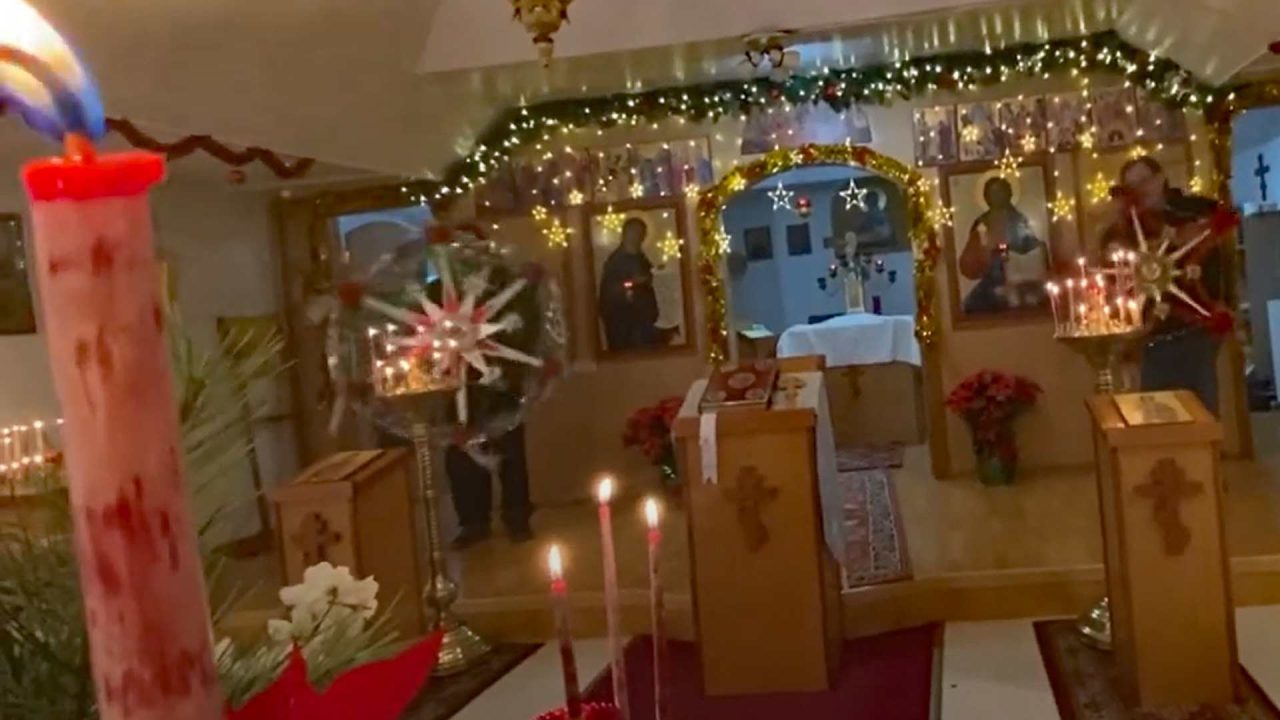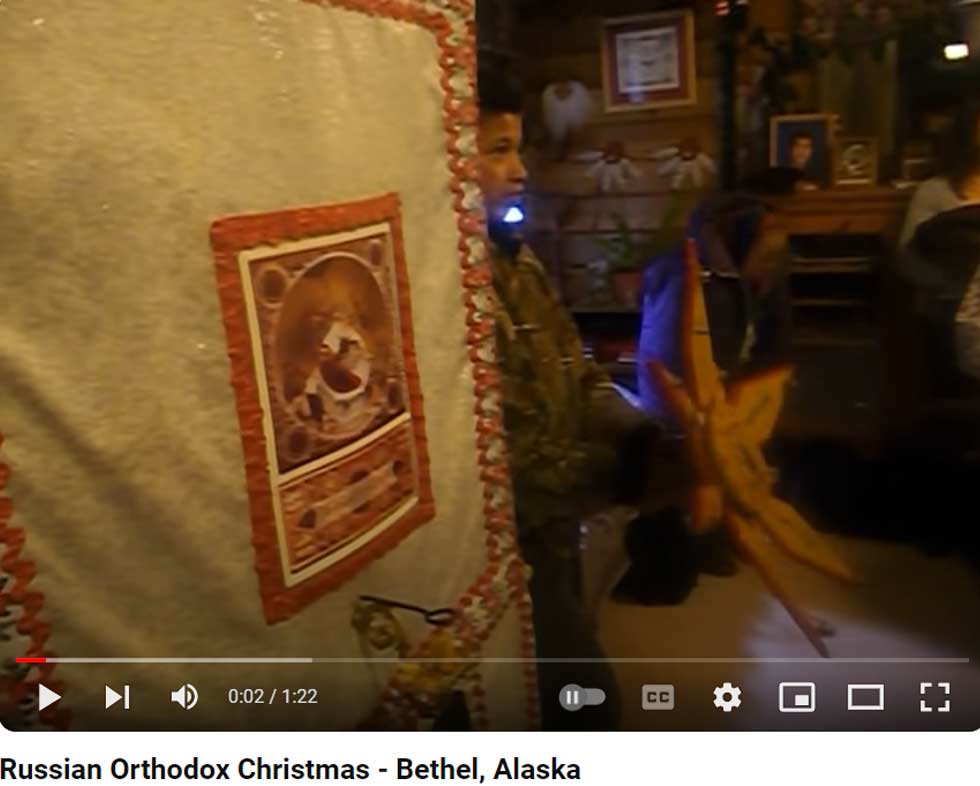
While most Alaskans have already thrown out their Christmas trees and packed away the ornaments for another year, thousands of Orthodox Christians are still gearing up to celebrate the birth of Christ on January 7.
That’s because the Russian Orthodox Church follows the Julian calendar, which is 13 days behind the modern Gregorian calendar.
Up until the 20th century, all Orthodox churches around the world followed the Julian calendar, created in the first century B.C. under Julius Caesar. By the 20th century, however, most of the globe had adopted the Gregorian calendar, introduced by Pope Gregory XIII in the 16th century to correct disparities between astronomical calculations and fixed calendar dates. Some Orthodox churches adopted the newer Gregorian calendar while others – most notably the Russian Orthodox Church – kept to the Julian.
With the Russian Orthodox Church in America’s 90 active Orthodox parishes across Alaska, January 7 remains a central holy day in villages throughout the state.
Alaska Natives have a particularly strong tie to Orthodox Christianity. The first mission was established on Kodiak Island in the late 1700s with the arrival of Russian fur traders and, later, priests.
Many of the clergy took time to learn the local Native language and traditions, and even helped create an alphabet in order to translate Sacred Scripture in the Native tongue. In fact, the first book ever published in an Alaska Native language was an 1834 Aleut catechism.
At Christmas, Orthodox faithful take part in the longstanding tradition of “starring,” which consists of groups visiting individual homes to sing songs – often sung in Russian, Yup’ik, Alutiiq, Dena’ina and other languages – as they spin a large, elaborately decorated nativity star in memory of the Star of Bethlehem. Many of the festivities surrounding Orthodox Christmas in Alaska incorporate ancient Native practices of feasting and revering the memories of departed relatives.
Orthodox Christians also observe a tradition of walking in procession to a lake, river or ocean where a priest blesses the water, which many parishioners then take home in bottles to use in blessings throughout the year.









1 Comment
I believe that Russia needed to change to the Gregorian system during W.W. I — in order to coordinate with their allies in France and Britain. The Czar came under criticism for that. To mitigate some of that criticism, he changed the name of St. Petersburg to Petrograd in order to dispel the Germanic style of “burg”.